
Unlock your athletic potential with data-backed tips on post-workout recovery. Explore the science behind recovery, the role of hormones, and effective post-exercise routines. Learn the importance of nutrition, protein intake, stretching, hydration, active recovery, sleep, foam rolling, and compression gear. Prioritize recovery with Book My Player and elevate your athletic performance.
In this blog we’ll cover
- The Impact of Recovery on Athletic Performance:
- 1. The Science Behind Recovery:
- 2. The Role of Hormones:
- Data-Backed Tips for Post-Workout Routines:
- 1. Nutrition for Recovery:
- 2. Protein Intake and Muscle Repair:
- 3. Stretching and Flexibility:
- 4. Hydration for Performance:
- 5. Active Recovery Strategies:
- 6. The Power of Sleep:
- 7. Foam Rolling and Self-Myofascial Release:
- 8. Listening to Your Body:
- 9. Compression Gear for Enhanced Recovery:
- Potential risks and health issues
- A Data Backed Approach
- Recovery timeout?
- Preferred Recovery Method?
- Factors influencing Recovery?
- And more...
The Impact of Recovery on Athletic Performance:
1. The Science Behind Recovery:
Let's delve into some scientific insights to understand the importance of recovery. When you engage in physical activity, especially intense workouts, your muscles experience microscopic damage. Proper recovery allows these muscles to repair and grow stronger. Inadequate recovery, on the other hand, can lead to overtraining, increased risk of injuries, and a plateau in performance.According to a study published in the "Journal of Strength and Conditioning Research," adequate recovery positively influences muscle function and reduces the risk of injuries. Another study in the "Journal of Sports Science & Medicine" emphasizes the link between proper recovery and enhanced athletic performance. These findings underscore the need to prioritize recovery in any training program.
2. The Role of Hormones:
The hormonal response to exercise is a critical aspect of recovery. Intense workouts can elevate cortisol levels, the stress hormone, and impact sleep quality. Sleep is a cornerstone of recovery, and disruptions in sleep patterns can hinder the body's ability to repair itself.Research published in the "European Journal of Applied Physiology" highlights the connection between sleep and muscle recovery, demonstrating that sleep-deprived individuals experience slower recovery and diminished exercise performance. Therefore, focusing on quality sleep is a non-negotiable component of an effective recovery strategy.
Data-Backed Tips for Post-Workout Routines:
Now that we understand the significance of recovery, let's explore some data-backed tips for post-workout routines that can elevate your athletic performance.
1. Nutrition for Recovery:
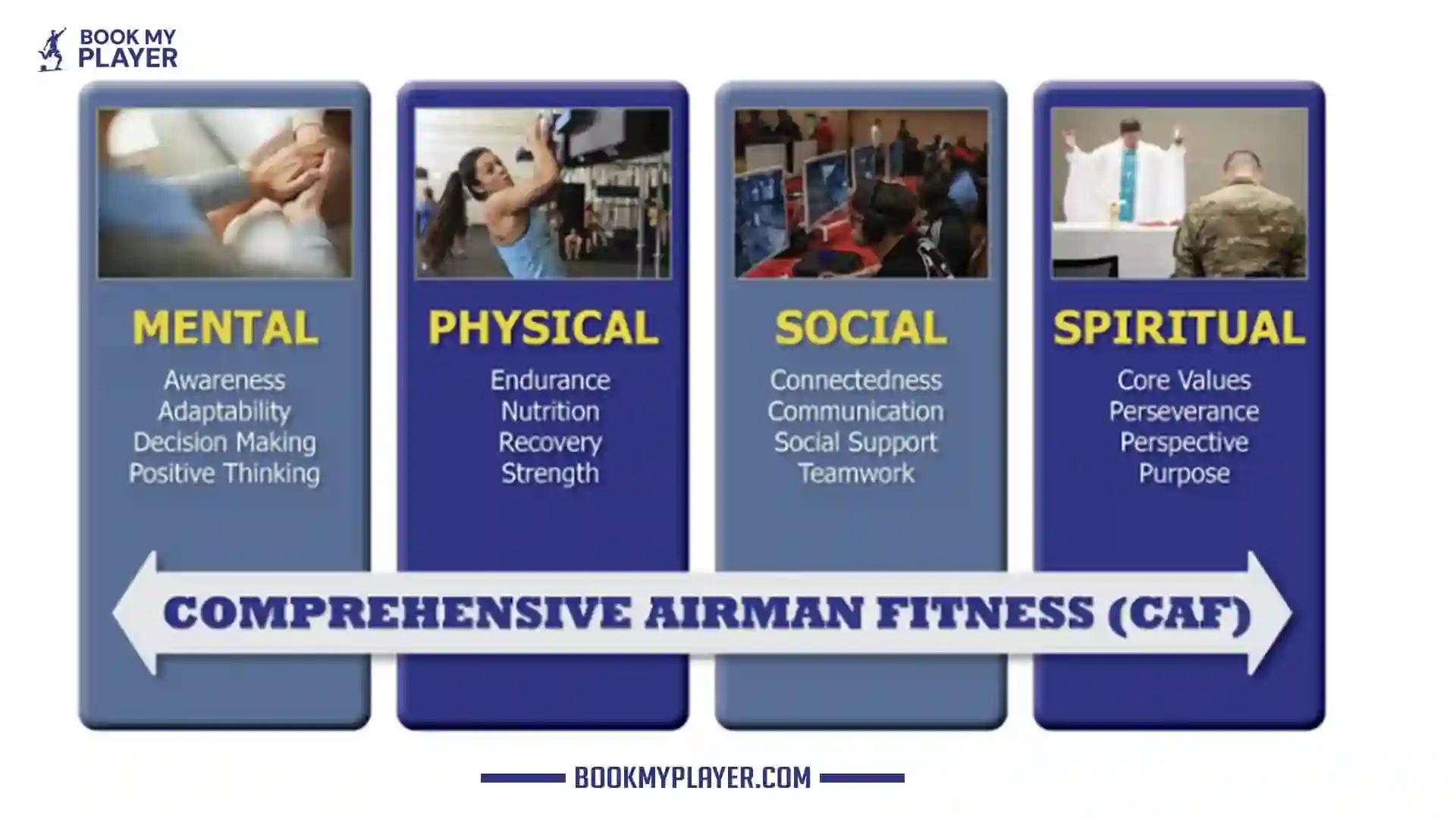
Proper nutrition is paramount for effective recovery. According to a study in the "International Journal of Sports Nutrition and Exercise Metabolism," consuming a combination of carbohydrates and protein post-exercise enhances muscle protein synthesis and replenishes glycogen stores. Aim for a well-balanced meal or snack within 30-60 minutes of completing your workout.
2. Protein Intake and Muscle Repair:
Protein plays a central role in muscle repair and growth. The American College of Sports Medicine recommends a protein intake of 1.2 to 2.0 grams per kilogram of body weight for athletes engaged in intense training. Including protein-rich foods or supplements in your post-workout nutrition supports optimal recovery.
3. Stretching and Flexibility:

While the importance of stretching is well-known, its impact on recovery is sometimes underestimated. A study in the "Journal of Strength and Conditioning Research" suggests that regular stretching can improve flexibility and reduce muscle stiffness, contributing to enhanced athletic performance. Incorporate static stretching into your post-workout routine to reap these benefits.
4. Hydration for Performance:

Dehydration can impair exercise performance and hinder recovery. Research published in "Sports Medicine" emphasizes the role of adequate hydration in preventing muscle cramps and promoting optimal muscle function. Ensure you replenish fluids lost during exercise by drinking water consistently throughout the day.
5. Active Recovery Strategies:
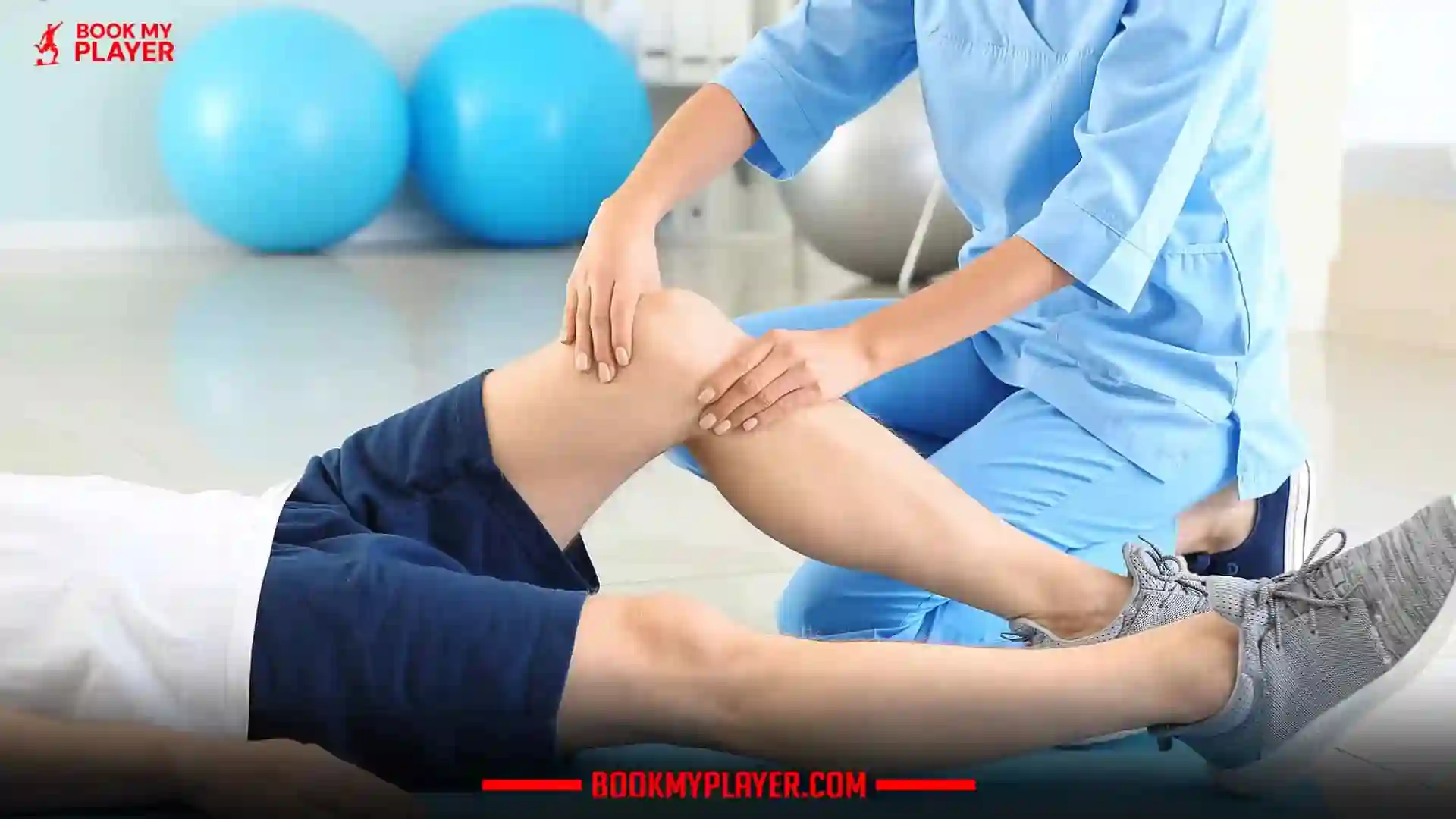
Engaging in low-intensity activities on rest days or incorporating active recovery sessions can positively impact recovery. A study in the "Journal of Strength and Conditioning Research" found that active recovery promotes better lactate clearance and reduces muscle soreness compared to passive recovery.
6. The Power of Sleep:

Quality sleep is a potent recovery tool. Data from a study in the "Journal of Science and Medicine in Sport" indicates that athletes with sufficient sleep experience improved reaction time, mood, and overall performance]. Aim for 7-9 hours of uninterrupted sleep per night to optimise recovery.
7. Foam Rolling and Self-Myofascial Release:

Research in the "Journal of Athletic Training" suggests that incorporating foam rolling or self-myofascial release into your post-workout routine can reduce muscle soreness and improve flexibility. This self-care technique enhances blood flow, facilitating the removal of metabolic waste products from muscles.
8. Listening to Your Body:

Understanding your body's signals is crucial for effective recovery. If you experience persistent pain or fatigue beyond normal muscle soreness, it's essential to listen to your body and adjust your training intensity or duration accordingly. Overtraining can have detrimental effects on performance and overall well-being.
9. Compression Gear for Enhanced Recovery:
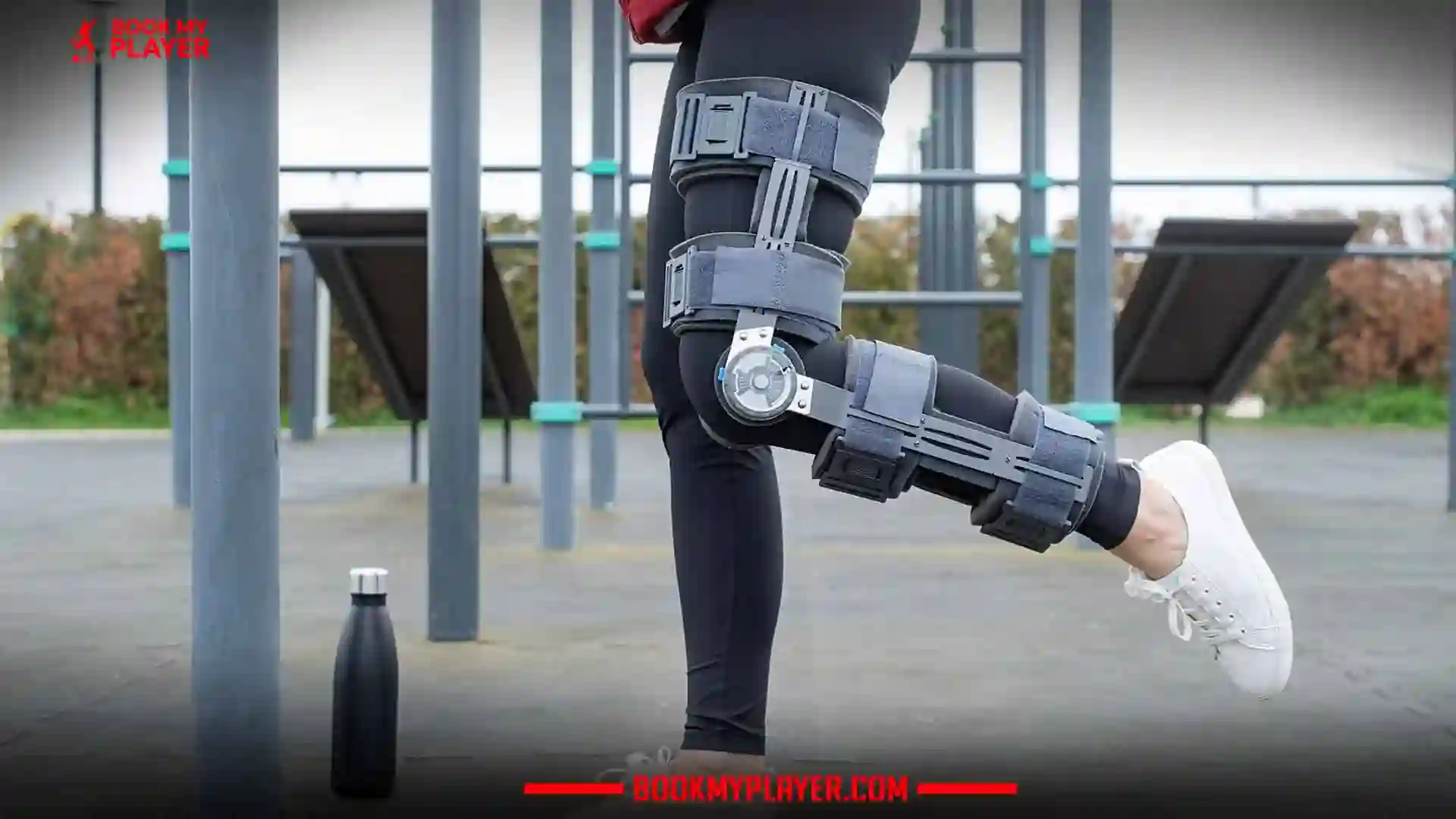
The use of compression garments, such as socks or sleeves, has gained popularity in the athletic community. Research in the "Journal of Sports Science & Medicine" suggests that compression garments may aid in reducing muscle soreness and improving perceived recovery. While individual responses may vary, incorporating compression gear into your recovery routine is worth exploring
Potential risks and health issues
Not eating enough after a workout can lead to several potential risks and health issues. Some of these risks includeIncreased risk of injury: Skipping post-workout meals can leave your body without the necessary nutrients and energy to repair and recover from the workout, increasing the likelihood of injury.Slower recovery: Consuming insufficient food after a workout can hinder your body's ability to recover and adapt to the exercise, potentially slowing down your progress.Weight regain: Skipping meals or not consuming enough food after a workout can lead to a caloric deficit, which may cause your body to hold onto fat and slow down weight loss progress.Poor performance: Not eating enough after a workout can negatively impact your body's ability to perform at its best during future workouts, as it may not have the necessary fuel to power through intense exercises.Muscle loss: Skipping post-workout meals can lead to muscle loss, as your body may resort to breaking down muscle tissue for energy when you don't provide enough food to support recovery.To minimize these risks, it's essential to consume a balanced diet and maintain a consistent eating schedule, even after exercising. This will help ensure that your body has the necessary nutrients and energy to recover, adapt, and perform optimally during future workouts
A Data Backed Approach
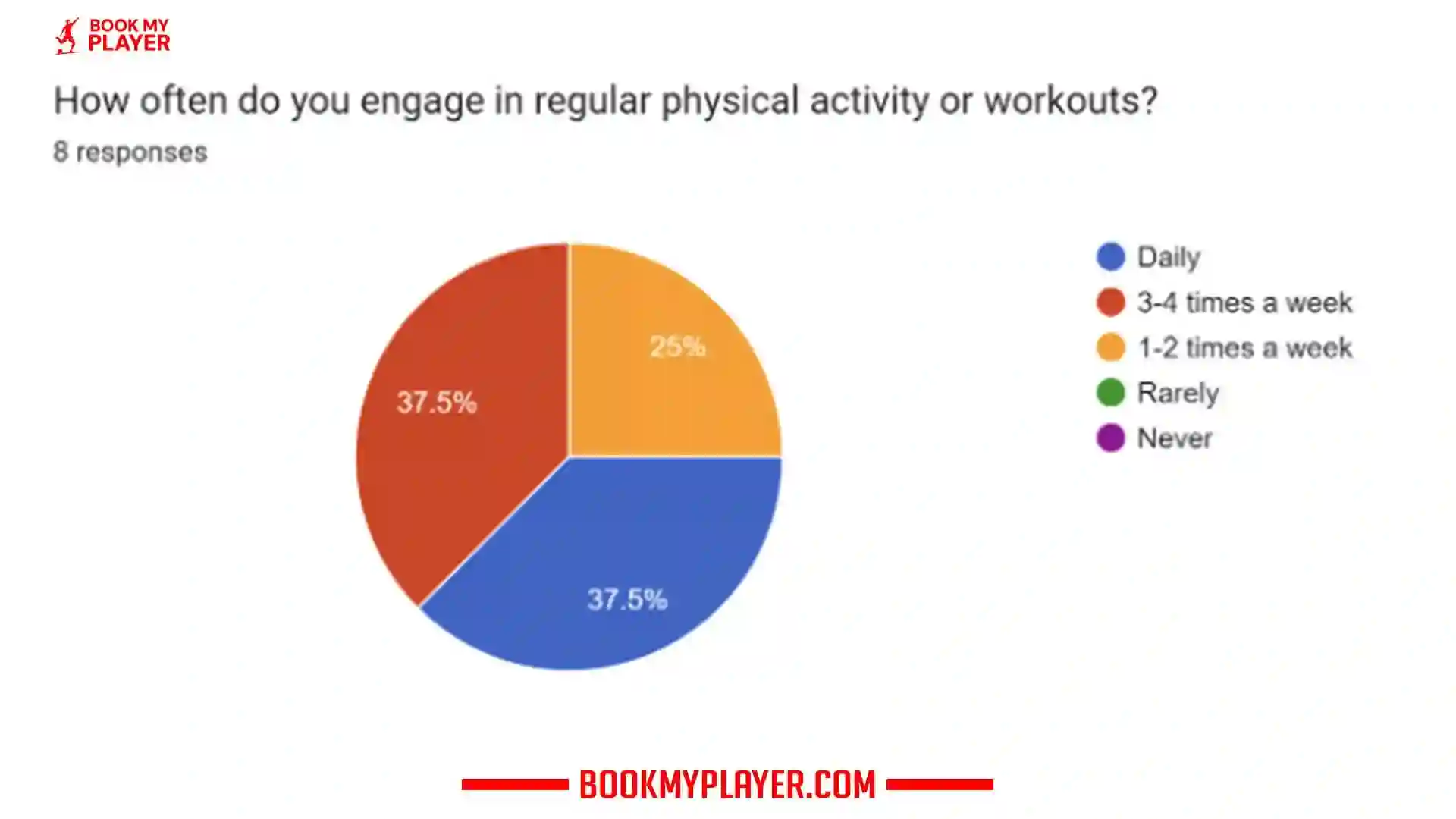
For a more data-backed approach, we released a comprehensive survey to collect data about working out and recovery styles around us.Here’s what we found out:
Recovery timeout?
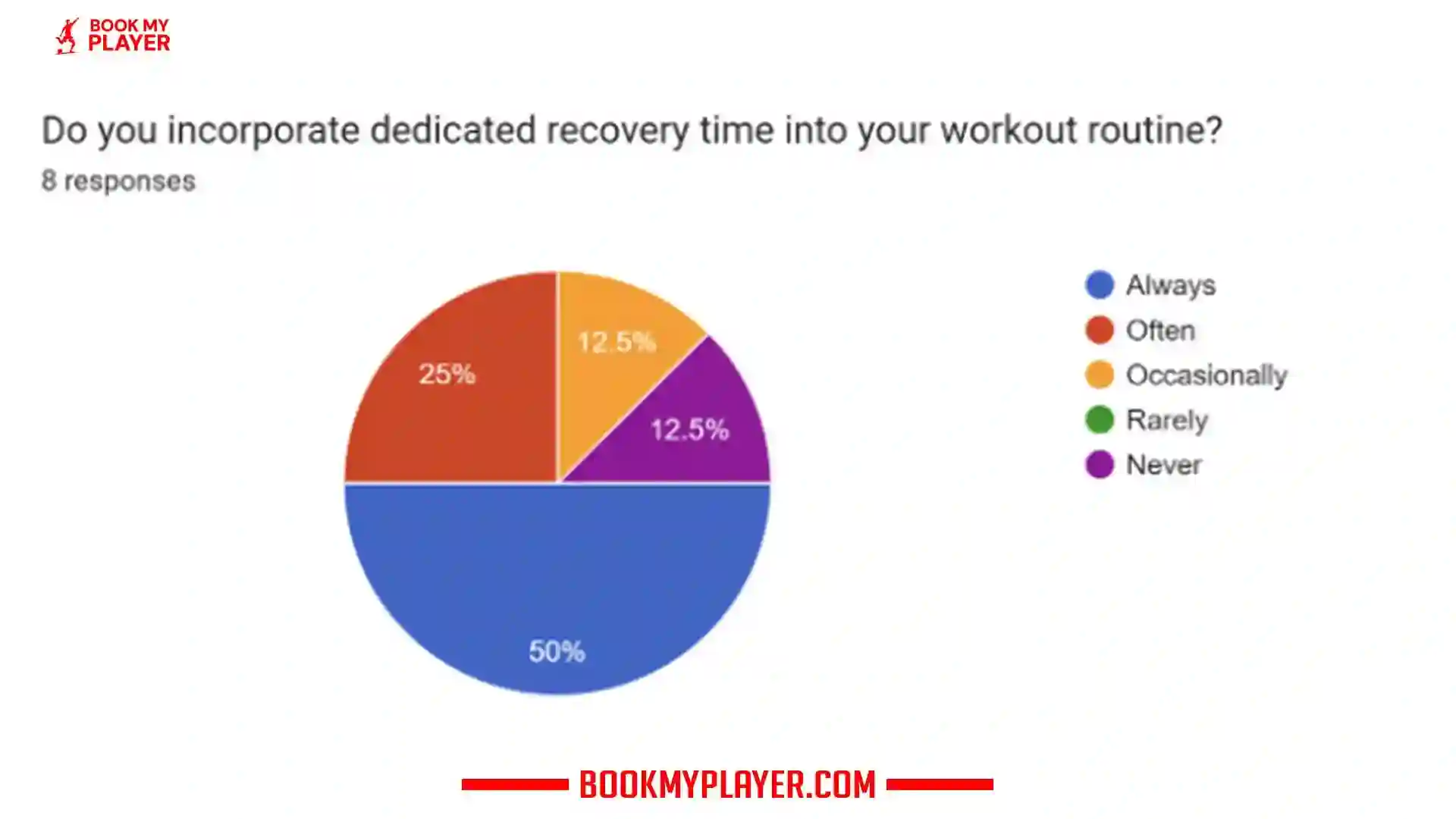
Preferred Recovery Method?
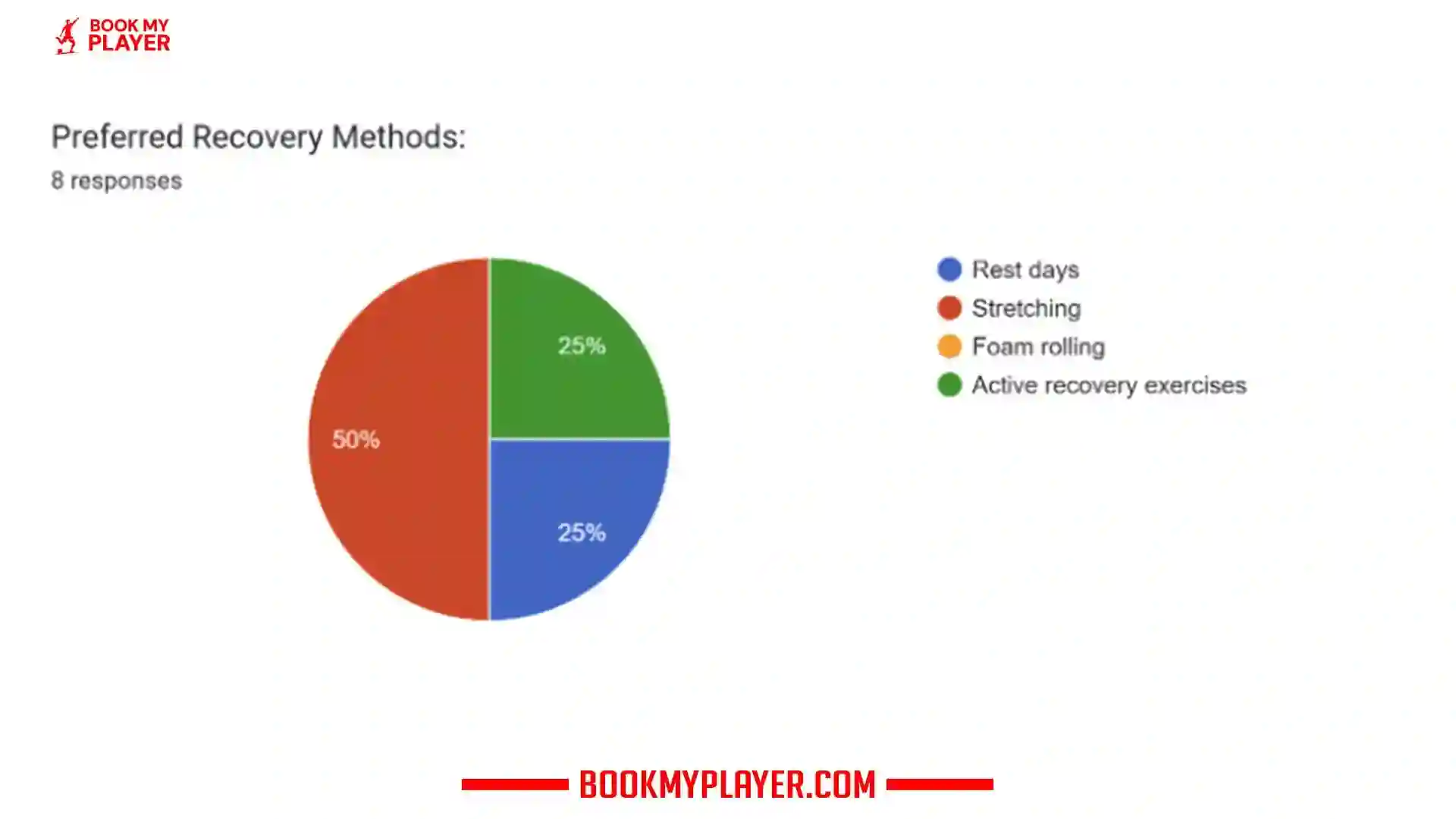
Factors influencing Recovery?
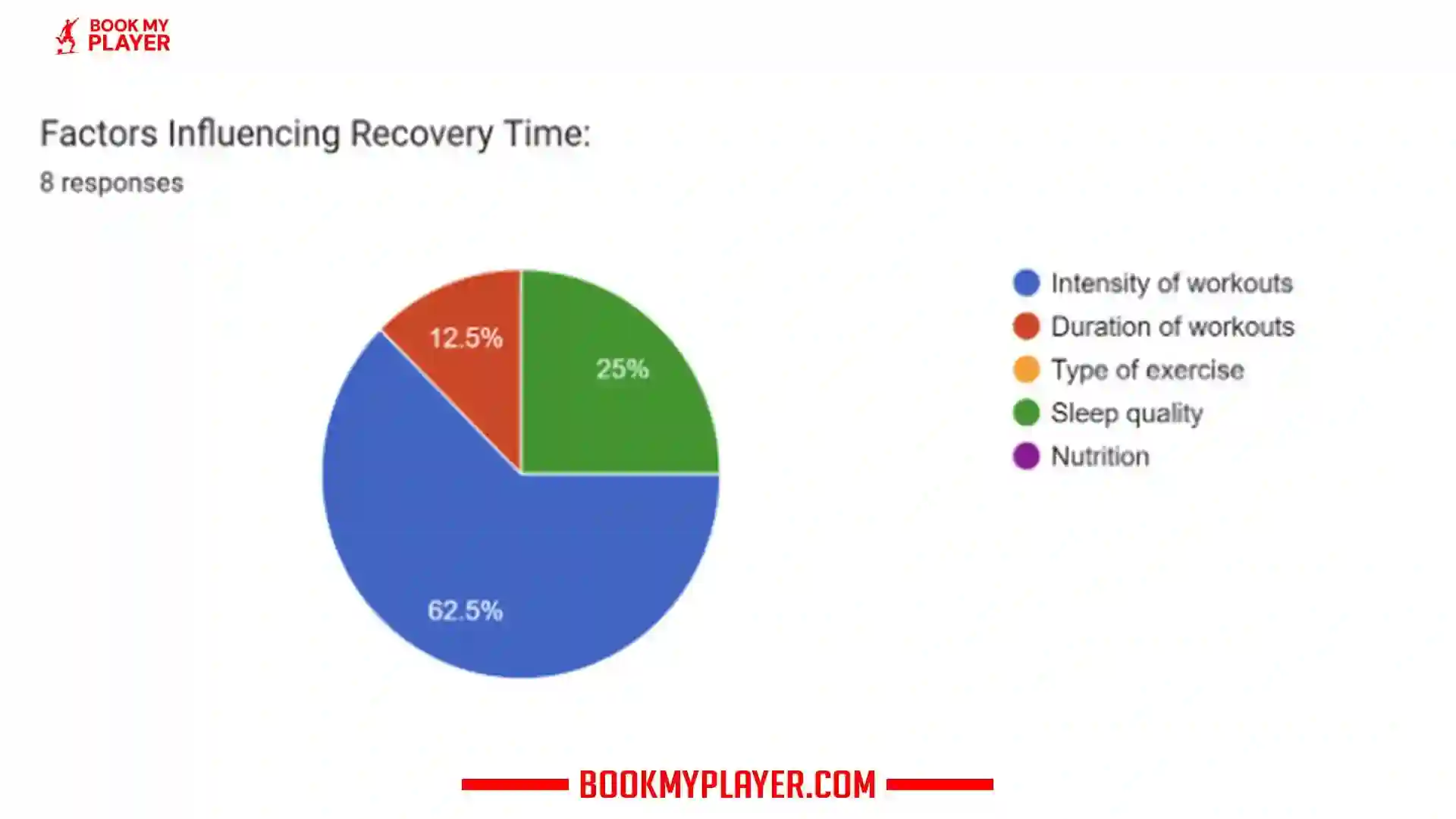
And more...
In conclusion, recovery is a cornerstone of athletic success. The data-backed tips for post-workout routines provided here offer a comprehensive approach to optimize recovery and elevate your performance. As you embark on your fitness journey with Book My Player, remember that understanding and implementing effective recovery strategies are integral to reaching your full athletic potential. Prioritize recovery, listen to your body, and watch as your performance reaches new heights.Now amigos wanna read more such blogs then click on the tabs below and we will take you through a reading journey.
Tags
Comments (0)
Weekend Reads
Mastering the Game: 10 Essential Tips for Amateur Athletes in India
January 8th, 2024 6:41 AM UTC
The Rise of Mixed Martial Arts: From Underground to Mainstream
January 3rd, 2024 12:36 PM UTC
Evolution of Football in the NCR
January 2nd, 2024 2:25 PM UTC
The Kings of 64 Squares: Unveiling the Chess Grandmasters of India
December 25th, 2023 6:59 PM UTC
Captaincy Chronicles: Dive into Mumbai Indians' Dynamic Shift!
December 25th, 2023 6:51 PM UTC
Rising from Athletic Setbacks: A Journey of Resilience and Triumph
December 25th, 2023 6:39 PM UTC
Doubles Dynamism: Charting the Course of Emerging Stars in Indian Badminton
December 25th, 2023 6:22 PM UTC
The Unbreakable Bond: Witnessing the Symbiosis Between a Coach and an Athlete
December 25th, 2023 6:10 PM UTC
Jwala Gutta's Game-Changing Move: Celebrating Sindhu, Empowering Future Cricket Stars
December 25th, 2023 5:31 PM UTC
Most Reads
Sanju Samson's Redemption: From Setbacks to Centuries
December 25th, 2023 5:17 PM UTC
Evolution of Football in the NCR
December 25th, 2023 6:00 AM UTC
Sonu Jaglan's Spectacular Performance Leads Gujarat Giants to Victory in Pro Kabaddi League Showdown
December 13th, 2023 8:14 PM UTC
The Future of Sports Technology: Enhancing Athlete Development in the Digital Age
December 13th, 2023 8:08 PM UTC
Strategic Planning for Collegiate Athletics: A Roadmap for Aspiring College Athletes
December 13th, 2023 7:56 PM UTC
Mental Toughness in Sports: Cultivating Resilience for Long-Term Success
December 13th, 2023 7:42 PM UTC
Inclusive Athletes: Ensuring Long Term Development Opportunities For All
December 13th, 2023 7:34 PM UTC
The Role Of Nutrition In Athletic Longevity:A Comprehensive Guide For Athletes
December 13th, 2023 7:16 PM UTC
Balancing Academics and Athletics: A Guide for Student-Athletes and Their Families
December 13th, 2023 7:00 PM UTC
Most Popular
Local Sports Events and Tournaments
February 29th, 2024 12:07 PM UTC
Women in Indian Sports
February 29th, 2024 11:32 AM UTC
Fitness and Health Tips for Athletes: Expert Advice for Peak Performance
February 22nd, 2024 1:38 PM UTC
Revolutionizing the Game: The Future of Sports Training in India with VR and AI Technologies
February 19th, 2024 12:54 PM UTC
Emerging Sports Leagues in India: A New Arena of Athleticism and Engagement
February 17th, 2024 10:40 AM UTC
Rising Sports Stars in India: Unveiling the Future Champions
February 15th, 2024 5:29 PM UTC
Unleashing the Power of Raiders: The Heartbeat of Pro Kabaddi League
February 15th, 2024 6:46 AM UTC
Running Through History: The Delhi Marathon 2024 Experience
February 14th, 2024 11:58 AM UTC
Navigating Success: The Case for Hiring a Personal Coach
January 19th, 2024 5:14 PM UTC
Beyond Boundaries: Unveiling India's Sporting Tapestry with Hidden Gems
January 19th, 2024 5:11 PM UTC
Shattering Glass Ceilings: A Journey Through the Triumphs of Women in Sports
January 17th, 2024 7:00 PM UTC
Decoding the Game: Unveiling the Intricacies of Players' Agents
January 17th, 2024 2:02 PM UTC
Unveiling the Art: Breaking Down the Basics of Boxing for Beginners
January 16th, 2024 8:57 AM UTC
Elevating Performance: The Symbiotic Relationship Between Mental Health and Sports
January 16th, 2024 3:50 AM UTC
Game-Changers: The Evolution of Sports Through Wearable Technology
January 14th, 2024 4:43 AM UTC
Unveiling the Power Duo: Strength Training vs. Cardio for Optimal Fitness
January 12th, 2024 4:43 AM UTC
The Transformative Power of Yoga and Meditation in Sports Performance
January 11th, 2024 6:37 PM UTC
Beyond Sweat and Grit: Unveiling the Future of Sports Training through Technological Mastery
January 9th, 2024 7:28 PM UTC
Unlocking Athletic Potential: The Crucial Role of Post-Workout Recovery
January 9th, 2024 12:00 PM UTC














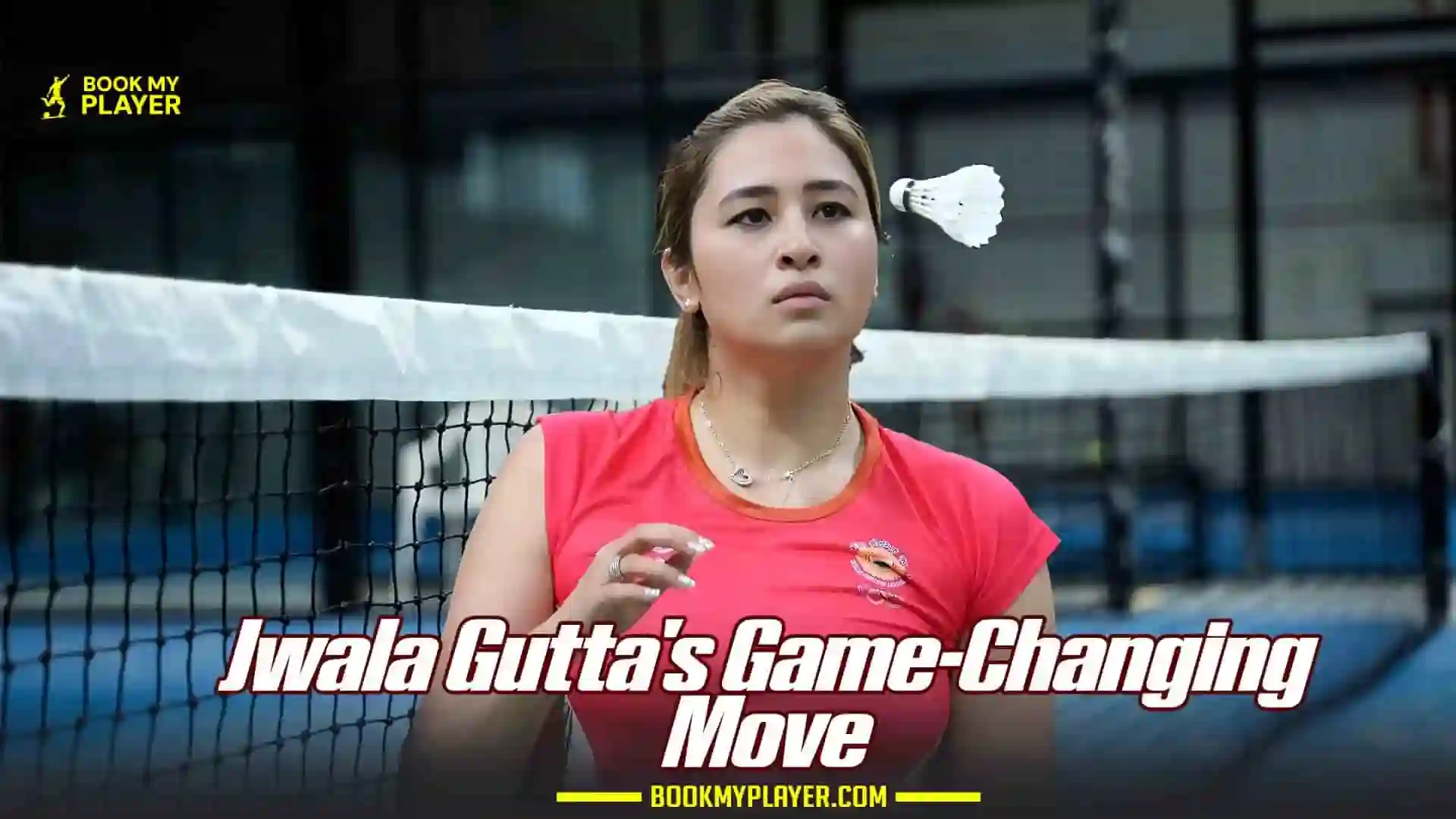






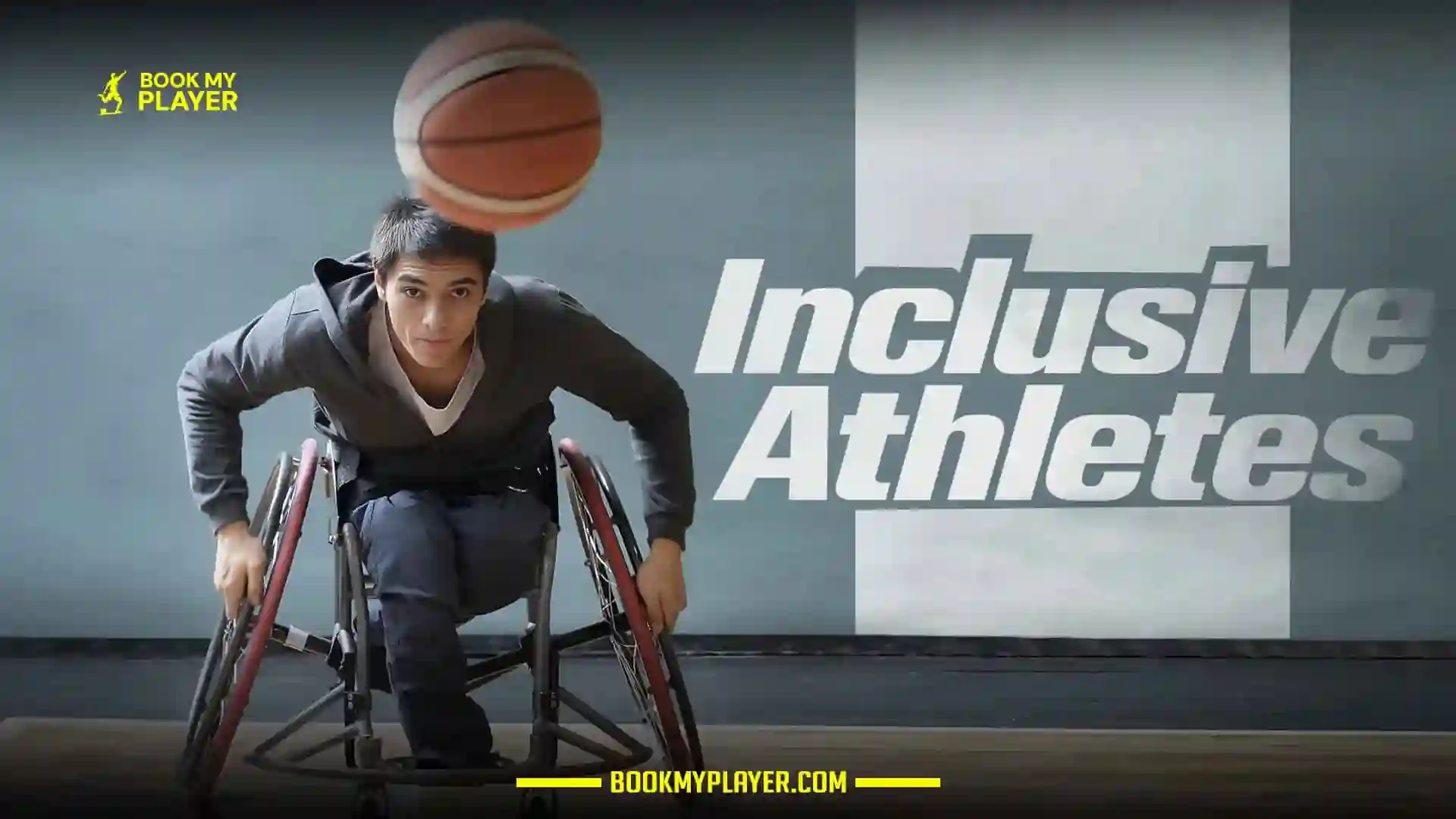




















Leave a Comment